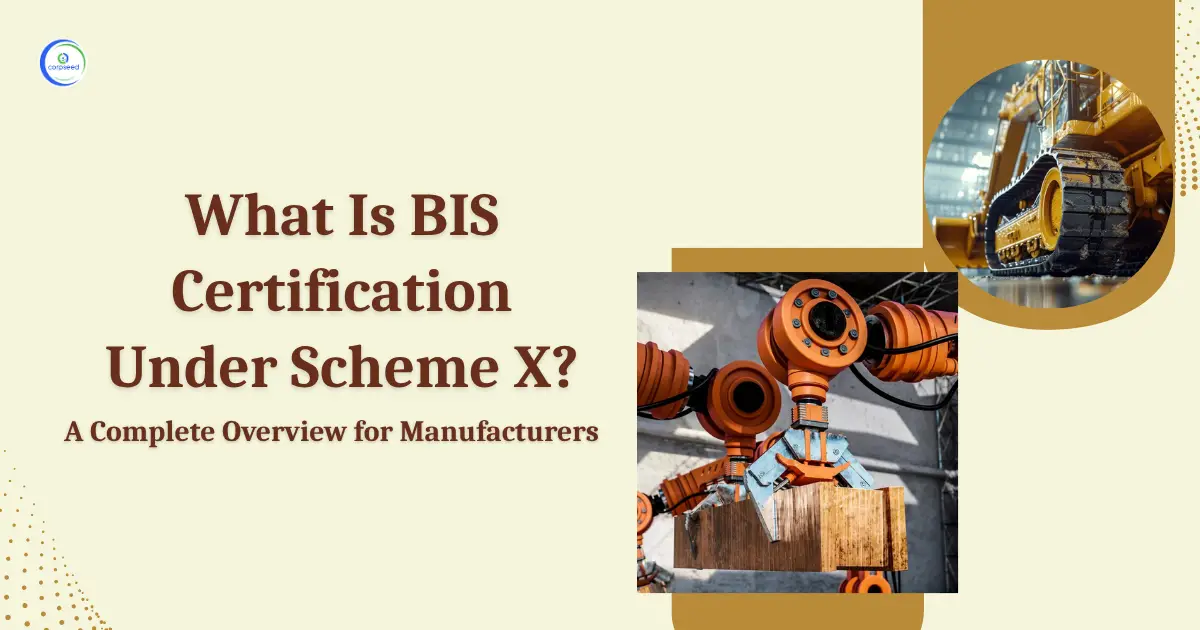The aluminium industry in India has witnessed significant growth in the last few decades. As one of the most versatile metals, aluminium is used in a wide range of industries such as construction, automotive, packaging, and electrical equipment. To ensure the quality of aluminium products and enhance their international competitiveness, the Government of India has introduced regulatory frameworks that enforce quality standards. In line with this, the Ministry of Commerce and Industry has issued the Aluminium and Aluminium Alloy Products (Quality Control) Order, 2025 to regulate the manufacture and supply of aluminium and aluminium alloy products in India. The purpose of this order is to protect the public interest, improve product quality and standardize the production of aluminium products in the country.
Overview of the Aluminium and Aluminium Alloy Products (Quality Control) Order, 2025
The Aluminium and Aluminium Alloy Products (Quality Control) Order, 2025, was issued by the Ministry of Commerce and Industry under the Department for Promotion of Industry and Internal Trade (DPIIT). This new order replaces the Aluminium and Aluminium Alloy Products (Quality Control) Order, 2024, bringing updated provisions related to certification, standards, and enforcement of quality controls. It is based on the Bureau of Indian Standards (BIS) Act, 2016. The aim of this order is to improve the competitiveness of the aluminium industry in India while ensuring that products meet strict quality standards. The government consulted with the Bureau of Indian Standards (BIS) to shape the order. Set to go into effect on October 1, 2025, it will require aluminium products to comply with national standards. By introducing these changes, the government seeks to improve the overall quality of aluminium products in India, benefiting both consumers and manufacturers while promoting better industry practices.
Table of Contents
- Overview of the Aluminium and Aluminium Alloy Products (Quality Control) Order, 2025
- Objective of the Aluminium and Aluminium Alloy Products (Quality Control) Order, 2025
- Key Features of the Aluminium and Aluminium Alloy Products (Quality Control) Order, 2025
- Importance of Aluminium Industry in India
- Penalties for Non-Compliance
- Table of Goods Affected by the Order
- Conclusion
--------------Blog Contact Form-------------
Objective of the Aluminium and Aluminium Alloy Products (Quality Control) Order, 2025
The primary objective of the Aluminium and Aluminium Alloy Products (Quality Control) Order, 2025 is to enforce uniformity in the quality of aluminium products manufactured and sold in India.
It aims to:
- Ensure that aluminium and aluminium alloy products meet the highest quality standards.
- Protect the interests of consumers and businesses by ensuring the availability of reliable and durable products.
- Establish clear guidelines for manufacturers to achieve BIS certification while ensuring compliance with national standards.
- Promote innovation in the aluminium sector while maintaining a high level of product consistency.
- Facilitate better trade practices by aligning Indian products with international standards.
Key Features of the Aluminium and Aluminium Alloy Products (Quality Control) Order, 2025
The Aluminium and Aluminium Alloy Products (Quality Control) Order, 2025, implements several important provisions:
- Compulsory Use of the BIS Standard Mark: All goods or articles specified in the table of the order must conform to the relevant Indian Standard (IS) and must bear the BIS Standard Mark. Manufacturers will need to obtain this mark under a license from the Bureau of Indian Standards, in accordance with Scheme-I of Schedule-II of the BIS Conformity Assessment Regulations, 2018.
- Exemptions for Export and Research: The order does not apply to aluminium products manufactured exclusively for export. Additionally, small quantities of imported goods (up to 200 kilograms) for research and development purposes are also exempt, provided they meet specific conditions.
- Implementation Dates for Different Enterprises: Micro, small, and medium enterprises (MSMEs) are given additional time to comply with the standards. While larger enterprises are required to conform to the standards by October 1, 2025, micro and small enterprises have later deadlines (April 1, 2026, for micro enterprises and January 1, 2026, for small enterprises).
- Certification and Enforcement: The Bureau of Indian Standards (BIS) will be responsible for certifying aluminium products and enforcing the provisions of this order. It will also oversee the implementation of the standards and issue licenses for the use of the Standard Mark.
Read Our Blog: What are the Standards for Emission or Discharge of Environmental Pollutants for Aluminium Plants?
Importance of Aluminium Industry in India
Aluminium is one of the most essential materials used in industries ranging from construction to automotive to electronics. In India, the aluminium sector is growing rapidly, with both public and private players investing heavily in production, technology and research. The importance of the aluminium industry can be summarized as follows:
- Economic Contribution: The aluminium industry in India contributes significantly to the national economy, creating jobs, promoting exports and facilitating industrial growth.
- Miscellaneous Applications: Aluminium is used in a variety of applications such as vehicle parts, construction materials, electrical conductors, packaging, and more. Its lightweight and corrosion-resistant properties make it essential in modern industries.
- Environmental Benefits: Aluminium is 100% recyclable, making it an eco-friendly material. The recycling process uses only 5% of the energy needed to make new aluminium, contributing to sustainability efforts.
- Export Potential: India is one of the largest producers and exporters of aluminium. Ensuring the quality of aluminium products through BIS registration is critical to maintaining international competitiveness.
Penalties for Non-Compliance
The Aluminium and Aluminium Alloy Products (Quality Control) Order, 2025, outlines penalties for non-compliance with its provisions. Manufacturers who fail to obtain BIS certification or fail to use the BIS standard mark on their products will be penalized under the Bureau of Indian Standards Act, 2016. Penalties can range from fines to suspension of a manufacturing license, depending on the severity of non-compliance. The imposition of fines ensures that only aluminium products that meet the required quality standards are sold in the market, thus protecting consumer interests and maintaining the reputation of Indian products domestically and internationally.
Read Our Blog: IS 18879 (Part 3): 2024 ISO 8536-3: 2009 + AMD 1: 2022 Infusion Equipment for Medical Use Part 3 Aluminium Caps for Infusion Bottles
Table of Goods Affected by the Order
The following table provides a list of goods or articles specified in the Aluminium and Aluminium Alloy Products (Quality Control) Order, 2025, along with their corresponding Indian Standard (IS) and the dates of implementation for general enterprises, micro enterprises, and small enterprises.
| S. No. | Goods or articles | Indian Standard | Title of Indian Standard | Date of implementation in general (other than micro and small enterprises) | Date of implementation for micro enterprises | Date of implementation for small enterprises |
| 1 | Aluminium and aluminium alloy products | 7092(Part1):1992 | Aluminium alloy tubes for irrigation purposes –welded tubes | 1st October, 2025 | 1st April 2026 | 1st January, 2026 |
| 2 | 7092(Part2):1987 | Aluminium alloy tubes for irrigation purposes –welded tubes | 1st October, 2025 | 1st April 2026 | 1st January, 2026 | |
| 3 | 5485:1997 | EC grade aluminium rod produced by continuous casting and rolling | 1st October, 2025 | 1st April 2026 | 1st January, 2026 | |
| 4 | 733:1983 | Wrought aluminium and aluminium alloy bars, rods and sections (for general engineering purpose) | 1st October, 2025 | 1st April 2026 | 1st January, 2026 | |
| 5 | 734:1975 | Wrought aluminium and aluminium alloys, forging stock and forgings for general engineering purposes. | 1st October, 2025 | 1st April 2026 | 1st January, 2026 | |
| 6 | 736:1986 | Wrought aluminium and aluminium alloy plate for general engineering purposes | 1st October, 2025 | 1st April 2026 | 1st January, 2026 | |
| 7 | 737:2008 | Wrought aluminium and aluminium alloy sheets and strip for general engineering purposes | 1st October, 2025 | 1st April 2026 | 1st January, 2026 | |
| 8 | 739:1992 | Wrought aluminium and aluminium alloy wire for general engineering purposes | 1st October, 2025 | 1st April 2026 | 1st January, 2026 | |
| 9 | 740:1977 | Wrought aluminium and aluminium alloy rivet stock for general engineering purposes. | 1st October, 2025 | 1st April 2026 | 1st January, 2026 | |
| 10 | 5082:1998 | Wrought aluminium and aluminium alloy bars, rods, tubes, sections, plates and sheets for electrical appliances | 1st October, 2025 | 1st April 2026 | 1st January, 2026 | |
| 11 | 16011:2012 | Aluminium and aluminium alloy foil for pharmaceutical packaging | 1st October, 2025 | 1st April 2026 | 1st January, 2026 | |
| 12 | 17682:2021 | Aluminium composite panel | 1st October, 2025 | 1st April 2026 | 1st January, 2026 | |
| 13 | 1285:2002 | Wrought aluminium and aluminium alloys-extruded round tube and hollow section for general engineering purpose | 1st October, 2025 | 1st April 2026 | 1st January, 2026 | |
| 14 | 2067:1975 | Wrought aluminium wire for electrical purposes | 1st October, 2025 | 1st April 2026 | 1st January, 2026 | |
| 15 | 21:1992 | Wrought aluminium and aluminium Alloys for manufacture of utensils | 1st October, 2025 | 1st April 2026 | 1st January, 2026 | |
| 16 | 1254:2007 | Corrugated aluminium sheet | 1st October, 2025 | 1st April 2026 | 1st January, 2026 | |
| 17 | 7902:2001 | Aluminium alloy forging stock and forgings (alloy 24343) for aerospace appliances | 1st October, 2025 | 1st April 2026 | 1st January, 2026 |
Conclusion
The Aluminium and Aluminium Alloy Products (Quality Control) Order, 2025, is an important step towards ensuring the quality of aluminium products manufactured and sold in India. By implementing strict standards and BIS certification, the government aims to protect consumer interests, promote fair business practices and enhance the global competitiveness of Indian aluminium products. Manufacturers will be required to comply with the order, and those that do not comply with the standards will face penalties. This order plays an essential role in strengthening the aluminium industry in India and promoting sustainable and quality-driven production practices.
This portion of the site is for informational purposes only. The content is not legal advice. The statements and opinions are the expression of author, not corpseed, and have not been evaluated by corpseed for accuracy, completeness, or changes in the law.
BOOK A FREE CONSULTATION
Get help from an experienced legal adviser. Schedule your consultation at a time that works for you and it's absolutely FREE.



.webp)





